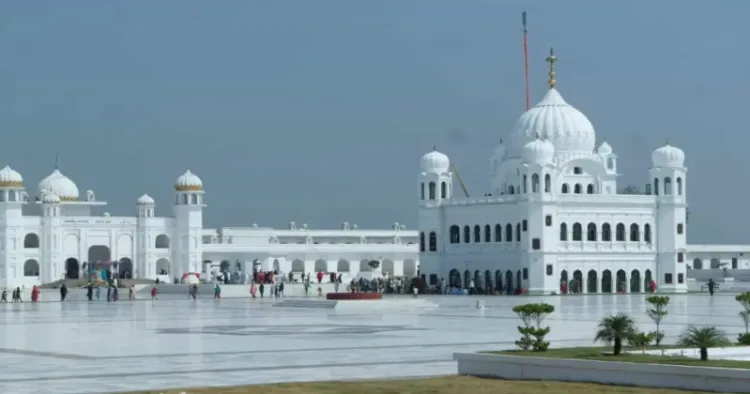Late in the year 2019, in November actually, the Kartarpur corridor between India and Pakistan opened. This was considered hugely positive for the Sikh pilgrims who wanted to visit the gurudwara situated barely some kilometres on the other side. The best thing about this corridor was facilitation of pilgrims in a visa free manner. Behind the curtains, away from prying eyes, the Indian and Pakistan governments had worked for a long time to make this possible.
According to a report of The Express Tribune of Pakistan, the two governments have renewed the arrangement at Kartarpur for another five years, till October 24, 2029. It bears mention here that the two sides had signed an agreement for visa free travel of pilgrims via Kartarpur corridor for five years. Days before the arrangement was to expire, the two sides silently decided to give it another lease of life some days ago.
Interestingly, there was no mention of the date on which the understanding on renewing the arrangements at Kartarpur corridor was reached. Neither the Pakistani foreign office nor the Indian Ministry of External Affairs in Delhi made any official comments on this so far. On Friday, it is customary for the Foreign Office (FO) of Pakistan to address an official press conference every week. However, the FO spokesperson Mumtaz Zahra Baloch had not said anything on the development last week.
The Kartarpur initiative had, at that time, earned widespread appreciation from the international community, including United Nations Secretary-General António Guterres who had described it as a “Corridor of Hope”. The reason for calling it so was that in February and August 2019, a series of events had heightened tensions between the two sides.
In February 2019, the Pulwama blast happened which then led to Balakot strikes in Pakistan. In August 2019, the Indian Parliament abrogated Article 35-A and 370 leading to a shut-down in Jammu & Kashmir. This created problems and thereafter India-Pakistan relations deteriorated further.
The opening of the visa free corridor had eased tensions and increased people to people contact between the two sides. Several prominent leaders from both sides attended the opening ceremony. Then Pakistan prime minister Imran Khan had inaugurated the corridor while former Indian prime minister Manmohan Singh, Navjot Singh Sidhu and other Indian had also attended.
The full potential of corridor perhaps could not be achieved as it was impacted by the tense bilateral relations between India and Pakistan. Early in 2019, there were discussions between the two sides on possible opening of another similar corridor near Teetwal in Kupwara district for travel to Sharda Peeth in Muzaffarabad district of Pakistan Occupied Jammu Kashmir (POJK). Late in 2023 and earlier this year, discussions between two sides happened about Sharda Peeth corridor but nothing concrete has emerged so far.
Chief Minister of Pakistan’s Punjab Maryam Nawaz, daughter of Nawaz Sharif, had personally visited the Kartapur corridor. Her mingling with the pilgrims there and assuring them all facilities were interpreted as attempts to lower temperatures between the two sides. Her father Nawaz Sharif, elder brother of Pakistan Prime Minister Shehbaz Sharif, has time and again tried to push two sides to engagements. Pakistan Foreign Minister Mohammad Ishaq Dar is considered Nawaz’s man in the Pakistani cabinet.
“The Government of Pakistan has announced the renewal of the Agreement between the Republic of India and the Government of the Islamic Republic of Pakistan for the facilitation of pilgrims to visit Gurudwara Darbar Sahib Kartarpur, Narowal, Pakistan for an additional period of five years,” read a foreign office statement.
“Agreement’s renewal underscores Pakistan’s enduring commitment to fostering interfaith harmony and peaceful coexistence,” it added.



















Comments